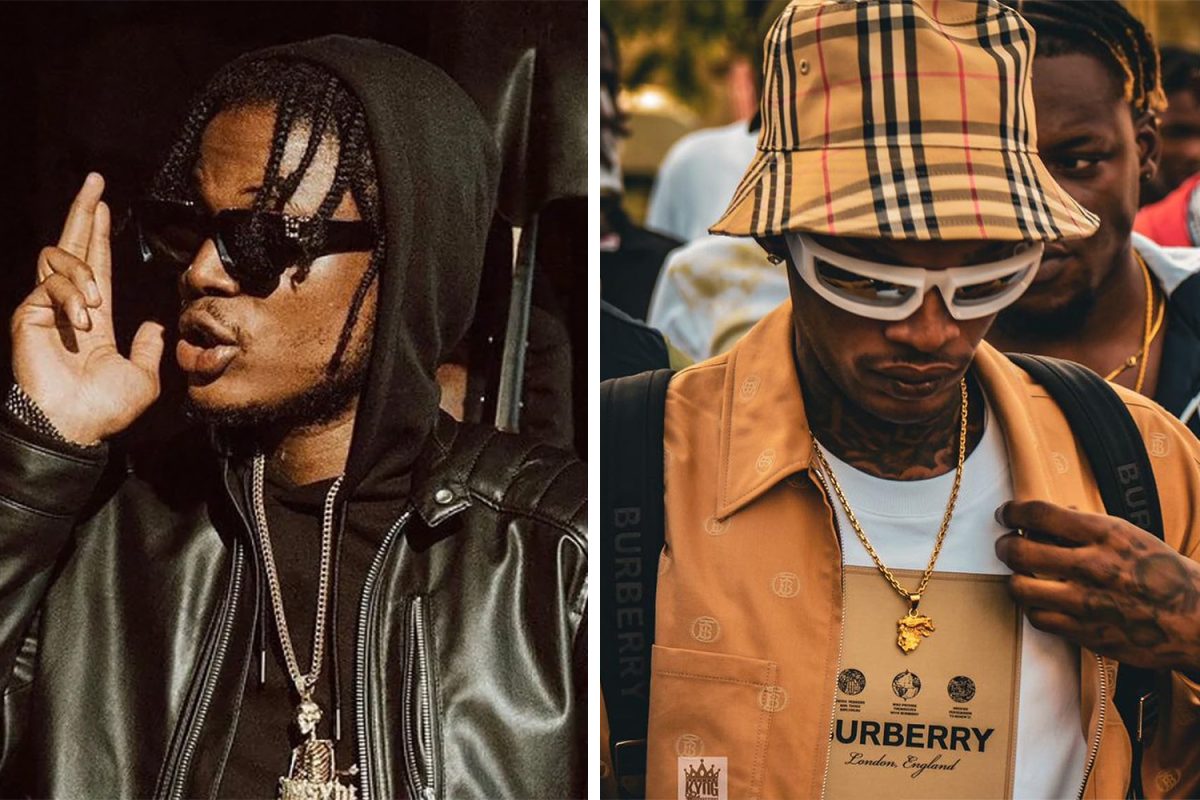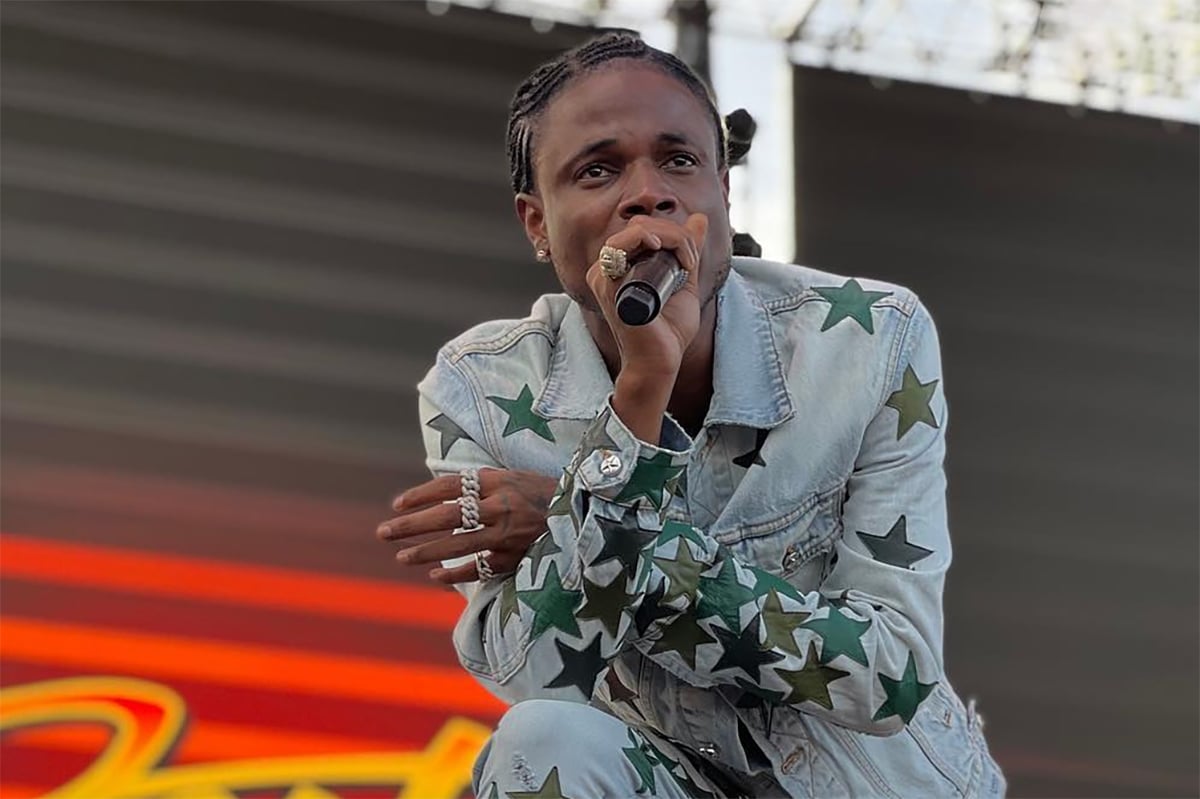Masicka, Skeng Clash Could Be Good For Dancehall, Says UWI Professor

Dancehall Doctor Professor Donna Hope, who is a culture, gender and society lecturer at the University of the West Indies, Mona Campus, has surmised that a “lyrical feud” between Masicka and Skeng could prove to be worthwhile for the Dancehall culture.
Hardcore Dancehall fans are in clash mode, especially following the announcement of the return of the Sting stage show, which is set for December 26 in St Ann, following a seven-year hiatus. Since the announcement, there have been reports of feuds between several artists, some of whom have recorded “diss songs” aimed at their peers.
And, following the release of Skeng’s most recent song, Day Break , fans have speculated that he took implicit jabs at Masicka, by mentioning the name of his mother, girlfriend, and his community in the track, supposedly to avenge statements made by Masicka who referred to users of Molly, a party drug venerated by Skeng, as “coke heads” and for laughing at a comment which criticized the Protocol artist’s entourage.
Masicka, himself, had been clamoring for a clash with his nemesis Alkaline and “any other deejay” from as far back as 2014, when he was just 20 years old, on the premise that Dancehall had gotten “too boring”.
Back then, he had dismissed Tommy Lee Sparta and Gage, who were being proffered as potential combatants, as “circus clowns”, while noting that Alkaline, whom he described as talented, was the one person from his generation who would be a worthy opponent, but that the Ardenne High School old boy was “afraid”.
From that time, until now Masicka is yet to engage in battle with any of his peers, even though several weeks ago there have been speculations that Alkaline had thrown down the gauntlet, via his song Static, the accompanying music video for which was shot within what appears to be a swamp, regarded as the home of crocodiles, to which Masicka has “aligned” himself.
However, while some people frown upon the feuds and clashes spurred by Dancehall artists, for Professor Hope, who is also author of Inna Di Dancehall: Popular Culture and the Politics of Identity in Jamaica, and Man Vibes: Masculinities in the Jamaican Dancehall, the culture of feuds within the music genre “has been a very productive component of the music cycle, the cycle of music production, the cycle of lyrics production”.
“For me, that has been one of the ways that artistes, especially male artistes, have been able to sort of have the energy and drive to keep on churning out song after song,” Professor Hope told online news outlet Our Today in an interview.

While Professor Hope is sure Day Break is in fact a ‘diss’ track, whether or not it is directed toward Masicka is unclear to her, given the lack of concrete evidence, a sentiment which was also expressed by veteran Dancehall sector Foota Hype last week.
According to Professor Hope, it is up to Masicka and his team to determine whether or not to respond to Skeng, and thereafter craft an appropriate response, a decision she says ought to be predicated on “what he would want for his career”.
“Remember a feud can carry your career forward if you focus on the lyrics and then energise the fans around the lyrics. …You know, Skeng spouts a lyrics, you spout a lyrics… it can be a back and forth but it depends on what Masicka and Masicka’s team want and if they desire to have Masicka embroiled in a lyrical (feud) because, if it’s not gonna be lyrical, it’s not gonna work,” she said.
According to Professor Hope, Masicka, while talented, artistic, and a good stage performer, has not been given the recognition he deserves. Therefore, it might be in his best interest, in order to stamp his authority, to take on Skeng, who is not only from the “new generation” of Dancehall artistes but is one of the genre’s hottest, when compared to the King Inna Earth artist.
“When people want to get elevated to kingship and higher levels, the rule is, as the mafiosa will tell you, ‘to become a Don, you kill a Don’. So, lyrically, if you want to elevate, you chop somebody that is higher than you,” she told the publication.

With respect to the return of Sting, Professor Hope also pointed out that it was “also important to consider that feuds can be generated for lyrical battles to play out” at that event.
Despite the possibility that lyrical feuds could be detrimental, she also noted that if the deejays focus solely on the lyrical and musical content, and are “properly managed in a controlled environment”, they can still excel career-wise, even if they lose a few battles, as in the case of Beenie Man and Bounty Killer, whose feud lasted for approximately two decades, but advanced their careers through the “creation of albums, visibility in their careers, increase in resources and profiting”.
In Masicka’s 2014 Onstage interview, he had declared that he was always clash-ready, a skill he had honed from his days at Calabar High School, and which he thought was missing from the Dancehall music space.
He had also said that lyrical clashes could can bring back the zest in Dancehall, as the artists then were “lame”.
The Calabar High School old boy had also declared that he was not in any dealings with demons, and so, while he respected Tommy Lee, he saw his occult antics as a “big joke business”. Alkaline he had said, while a talented deejay, was a coward who ought to accept the fact that he was living in Vybz Kartel’s shadow.
